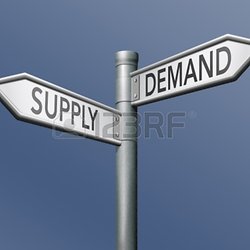 It is my competition that a non-public entity, whether an individual, a small business, a privately held corporation or a non-public organization, has the proper to hire and serve who ever they choose. It is indeed fairly obvious that in a dynamic economic system with fast technical progress and extensive and frequent earnings fluctuations all expectations primarily based on the prevalence of long-run developments should be of a somewhat problematical character, but to our present downside this is strictly irrelevant.
It is my competition that a non-public entity, whether an individual, a small business, a privately held corporation or a non-public organization, has the proper to hire and serve who ever they choose. It is indeed fairly obvious that in a dynamic economic system with fast technical progress and extensive and frequent earnings fluctuations all expectations primarily based on the prevalence of long-run developments should be of a somewhat problematical character, but to our present downside this is strictly irrelevant.
Finally, the market economic system leads to periodic economic crises, where all these disadvantages develop to a degree that many of the advantages I mentioned earlier simply dry up the economic system stops growing, fewer things are made, growth of the forces of production slows down, investment drops off, and so forth.

It simply is unnecessary to continue arguing that we must give priority to the benefits of the market when they are in the strategy of disappearing. For empirical evidence, just have a look at how rapidly and how totally China fell victim to all the disadvantages of the market once it set out to avail itself of the market’s advantages. Market economic system has several advantages Having a healthy competition and a system that encourages entrepreneurship is necessary in any market.
Social and technical abilities needed to operate within a market economic system system are rapidly realized as is the data to succeed. Although the market economic system system sounds perfect, there are at all times problems with any kind of economic system. The big companies have moved their production to international locations where they’ll get low-cost labor with few safety rules for the workers. The economic system will stop growing when goods are overproduced and employees are then unemployed. A command economic system is where economic choices are planned out in detail by a central government authority. Central planners seek to switch the forces that operate in a free market economic system , and the customs that guide a conventional economic system , to realize specific societal targets.
For example, the command economic system in Russia built up an effective navy would possibly and rapidly rebuilt the economic system after World Warfare II. They usually develop a shadow economic system, or black market, to buy and sell the things the command economic system isn’t producing. Centrally planned economies also have bother producing the proper exports at world market prices.
